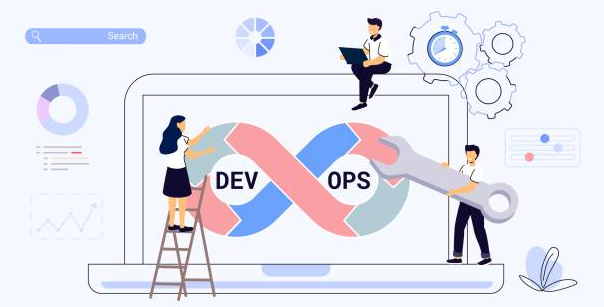
Being ahead of the curve is crucial in the quickly changing world of software development. DevOps is helpful in this situation. The term “DevOps,” which combines the terms “Development” and “Operations,” is more than simply a catchphrase; it refers to a revolutionary method for improving efficiency, automation, and collaboration in the software development and deployment processes.
Taking a DevOps course will assist you in mastering this paradigm shift. This post discusses the benefits of DevOps, the value of DevOps training, and how to finish this course effectively to speed up your development efforts.
The DevOps Revolution
Before delving into the intricacies of DevOps courses, let’s first understand the DevOps revolution and why it’s essential.
Understanding DevOps
DevOps is a culture, a set of practices, and a combination of tools aimed at automating and integrating the processes of software development and IT operations. It strives to bridge the gap between development and operations teams, enabling them to collaborate seamlessly throughout the development lifecycle.
One of the primary goals of DevOps is to streamline the software delivery pipeline, reducing manual errors and accelerating the release cycle. DevOps practices encompass continuous integration, continuous delivery, and continuous deployment (CI/CD), automation, and effective monitoring, among others.
The benefits of DevOps
Implementing DevOps principles can have a profound impact on software development. Here are some of the benefits:
- Faster time-to-market: DevOps expedites the development lifecycle, diminishing time-to-market, a critical factor in the swiftly evolving landscape of the technology industry today.
- Improved collaboration: It encourages close collaboration between development and operations teams, leading to better communication and shared responsibility.
- Increased efficiency: Automation and streamlined processes minimize manual errors and increase overall efficiency.
- Enhanced quality: Continuous integration and continuous delivery practices result in higher software quality.
- Cost reduction: By automating repetitive tasks and reducing downtime, DevOps can help cut costs.
- Scalability: DevOps practices make it easier to scale infrastructure and adapt to changing business needs.
The Need for a DevOps Course
While DevOps offers numerous advantages, mastering it requires comprehensive knowledge and hands-on experience. A structured DevOps course is the ideal way to gain these skills. Here’s why it’s essential:
● In-depth learning
DevOps encompasses various tools, methodologies, and best practices. A DevOps course provides in-depth knowledge about these aspects, equipping you with a solid foundation.
● Hands-on experience
Learning DevOps isn’t just about theory; it’s about practical application. A DevOps course often includes hands-on labs, giving you a chance to apply what you’ve learned in real-world scenarios.
● Certification
DevOps courses often offer certification upon completion, which can be a valuable addition to your resume. Certifications like AWS Certified DevOps Engineer or Docker Certified Associate are highly regarded in the industry.
● Networking
Enrolling in a DevOps course allows you to network with peers and instructors who have real-world experience in the field. Networking can open doors to job opportunities and collaborative projects.
Navigating your DevOps course
Now that we’ve established the importance of a DevOps course, let’s discuss how to make the most of your journey:
● Set clear goals
Prior to embarking on your DevOps course, it’s crucial to establish your objectives. Are you aspiring to become a DevOps engineer, or are you primarily interested in augmenting your current development skills? Having a clear understanding of your goals will guide you in selecting the most appropriate course and maintaining your focus throughout your learning journey.
● Choose the right course
There are numerous DevOps courses available, both online and in-person. Research the options and select a course that aligns with your goals, budget, and schedule.
● Engage actively
Active engagement is pivotal for achieving success. Attend your classes diligently, ensure you complete assignments, and don’t hesitate to seek clarification when you have questions. The more actively involved you are, the greater your potential for learning and growth.
● Practice continuously
DevOps is all about hands-on experience. Set up your own DevOps environment at home or use cloud-based platforms to practice what you’ve learned.
● Collaborate and Network
Take advantage of group projects and networking opportunities provided by your course. Collaborating with peers and professionals can lead to valuable insights and connections.
● Stay updated
The DevOps realm is in a constant state of evolution. To stay current with the most recent trends, tools, and best practices, consider following industry blogs, participating in webinars, and becoming an active member of DevOps communities.
● Work on real-world projects
If possible, apply your DevOps knowledge to real-world projects. This practical experience can set you apart in the job market.
Conclusion
Enrolling in a DevOps course is your ticket to unlocking the full potential of this transformative approach. By grasping the essence of the DevOps paradigm shift, acknowledging the significance of a DevOps training program, and charting a purposeful educational path, you can establish yourself as a highly sought-after DevOps expert. In an ever-evolving software development arena, possessing DevOps proficiency is a prized asset that will help you maintain a competitive edge within the industry.







